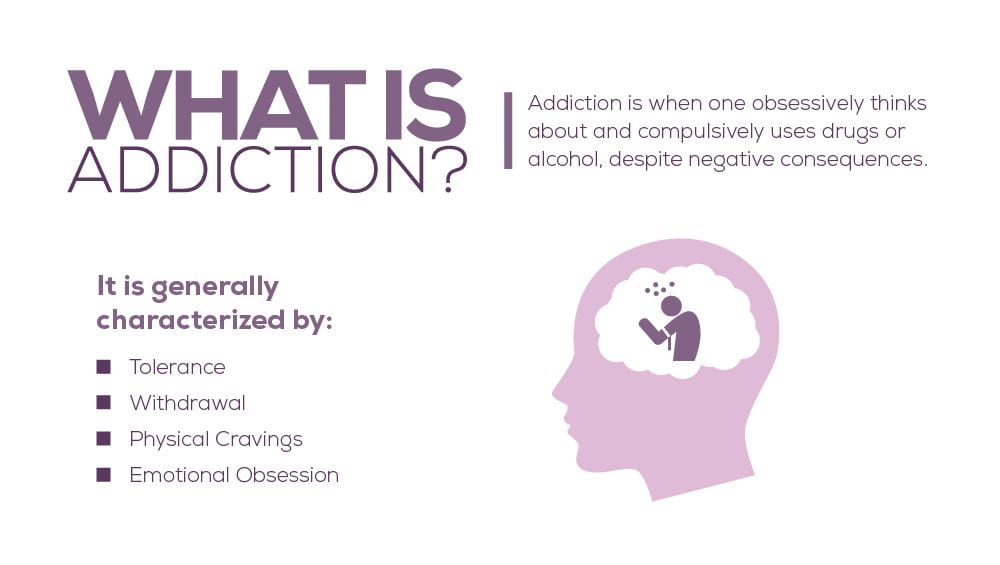
Ad·dic·tion
the condition of being addicted to a particular substance, thing, or activity.
What is Addiction?
- People use drugs, such as methamphetamine, for a variety of reasons. For some, using helps them to relax, unwind, feel more social or to feel pleasure. Some use as a coping mechanism or to fit in with a group, or some use just as a means of experimenting.
- No one begins using with the goal of becoming addicted. Many people believe that they have the ability to stop whenever they choose, but due to withdrawal symptoms and the highly addictive nature of most drugs, it can be extremely difficult to stop using.
- Addiction is a disease. Factors that predispose individuals to addiction include genetic, psychosocial and environmental.
- It’s often difficult to stop using because of the initial high individuals experience, as the effects initially tend to be positive. Substance use can increase a users mood and offers an escape from reality, which can be very appealing to many seeking an ‘out’ from their day to day lives.
- Continuous use can cause changes in neural pathways in the brain, making withdrawal symptoms all the more severe if an attempt is made to come off using.

Risk factors for substance use problems in youth
- Familial substance use
- Poor academic performance
- Poverty
- Social substance use
- Gender, age, sexual orientation
- Abuse (emotional, physical, sexual)
- Experiencing discrimination or oppression
There is always help out there, there are many options, it’s just a matter of finding the right fit for your situation. Seeking help can include individual or group counselling, visiting local drug treatment centres and accessing professional help.
Check out our resources page for more information and resources within the Guelph community.
Addressing Stigma
There is a lot of stigma surrounding substance use and those dealing with addiction. The stigma surrounding mental health and substance use often acts as a barrier for individuals trying to access the appropriate care or support from their families and friends. Overcoming addiction is a scary and difficult process, being supportive is very important when it comes to addressing this very serious disease.
Here are some ways in which you can support someone struggling with addiction:
- Use mindful language
- Be open and understanding of the individuals struggle
- Put the person ahead of the problem
- Provide the support and empathy it take to start the road to recovery
Resources for family members/partners/friends
Supporting someone with addiction and substance use problems is not an easy task. It requires patience, understanding and takes a great emotional toll. While there are many resources available to those who are struggling it is equally as important to make sure you are also taking care of yourself. This can include:
- Practicing self care
- Set boundaries
- Make time for yourself
- Seek support for yourself
- Acknowledge your own feelings towards the situation
- Maintain your own support systems
- Don’t let addiction take over your life
- Avoid criticizing the individual going through substance use problems
- Recognize recovery is not a linear path
- Educate yourself
- Have realistic expectations
Information was gathered from:
https://www.camh.ca/-/media/files/guides-and-publications/addiction-guide-en.pdf
https://www.camh.ca/en/health-info/guides-and-publications/straight-talk-methamphetamines


